- myFICO® Forums
- FICO Scoring and Other Credit Topics
- Understanding FICO® Scoring
- Re: Impact on authorized user FICO
- Subscribe to RSS Feed
- Mark Topic as New
- Mark Topic as Read
- Float this Topic for Current User
- Bookmark
- Subscribe
- Mute
- Printer Friendly Page
Impact on authorized user FICO
Is your credit card giving you the perks you want?
Browse credit cards from a variety of issuers to see if there's a better card for you.
- Mark as New
- Bookmark
- Subscribe
- Mute
- Subscribe to RSS Feed
- Permalink
- Report Inappropriate Content
Impact on authorized user FICO
If I pay off a high balance credit card to improve my score, will that also help my authorized user's score?
- Mark as New
- Bookmark
- Subscribe
- Mute
- Subscribe to RSS Feed
- Permalink
- Report Inappropriate Content
Re: Impact on authorized user FICO
@rayj102 wrote:If I pay off a high balance credit card to improve my score, will that also help my authorized user's score?
All things being equal, yes. But it largely depends on their overall credit profile. Typically paying down CC's does improve ones scores. To what degree all depends on the rest of ones credit profile.
- Mark as New
- Bookmark
- Subscribe
- Mute
- Subscribe to RSS Feed
- Permalink
- Report Inappropriate Content
Re: Impact on authorized user FICO
I could be wrong on this but the AU's score is not affected (one way or the other) if the issuer did not collect a SSN at the time the primary card holder ordered the AU's card.
In an effort to try to jump start my 14 yo's credit history, I had added him to my Savor and my Double Cash. Neither collected a SSN. Just last week, I ordered an AU card for him from USB (Smartly Visa). USB did request a SSN! Yes! ![]()
5% CB rotating:
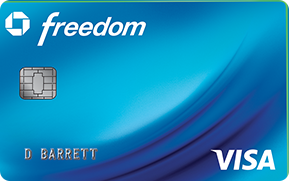

 ;
;Everyday 3% CB:
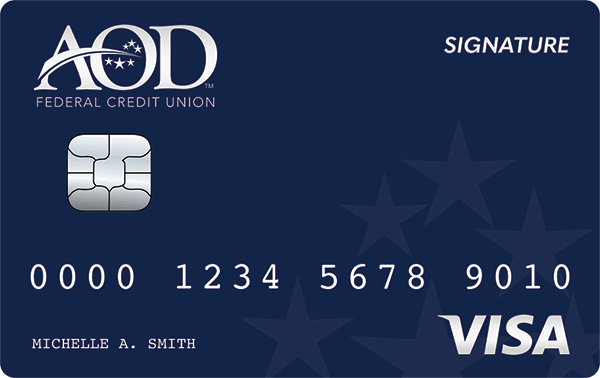 ;
;Everyday 5%:




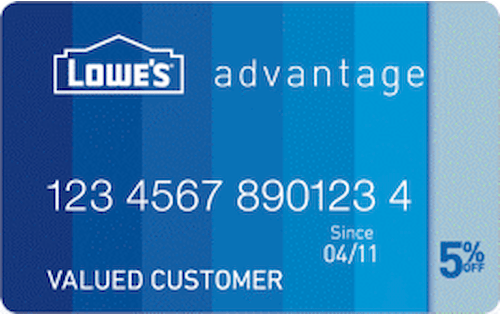

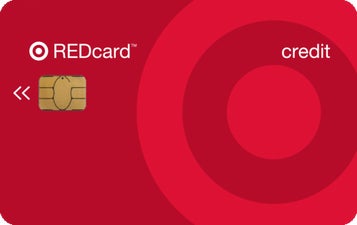 ;
;Companion Card:
 ;
;Everyday 2.2% CB:
 ;
;Retired to sock drawer after AOD (kept alive w/ 1 purchase every 6 mo):
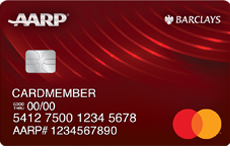

 ;
;On my radar:
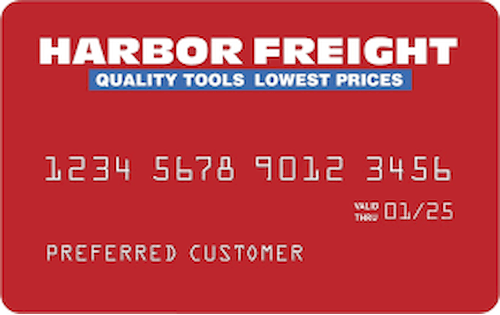
 ;
;Still Waiting for an Invite:
 ;
;No hope:

- Mark as New
- Bookmark
- Subscribe
- Mute
- Subscribe to RSS Feed
- Permalink
- Report Inappropriate Content
Re: Impact on authorized user FICO
@rayj102 wrote:If I pay off a high balance credit card to improve my score, will that also help my authorized user's score?
No, it should not affect their score on Fico 8 and later Fico models. Why? Authorized users are not responsible balances on these accounts. So account utilization level, high or low, should not impact the AU's score. That being said, the credit limit on the account may get included in the total available credit for the AU.
Fico 8: .......EQ 850 TU 850 EX 850
Fico 4 .....:. EQ 809 TU 823 EX 830 EX Fico 98: 842
Fico 8 BC:. EQ 892 TU 900 EX 900
Fico 8 AU:. EQ 887 TU 897 EX 899
Fico 4 BC:. EQ 826 TU 858, EX Fico 98 BC: 870
Fico 4 AU:. EQ 831 TU 872, EX Fico 98 AU: 861
VS 3.0:...... EQ 835 TU 835 EX 835
CBIS: ........EQ LN Auto 940 EQ LN Home 870 TU Auto 902 TU Home 950
- Mark as New
- Bookmark
- Subscribe
- Mute
- Subscribe to RSS Feed
- Permalink
- Report Inappropriate Content
Re: Impact on authorized user FICO
@Thomas_Thumb wrote:
@rayj102 wrote:If I pay off a high balance credit card to improve my score, will that also help my authorized user's score?
No, it should not affect their score on Fico 8 and later Fico models. Why? Authorized users are not responsible balances on these accounts. So account utilization level, high or low, should not impact the AU's score. That being said, the credit limit on the account may get included in the total available credit for the AU.
Yes. The AU's total available credit is included and driving up a balance will affect their overall UTL. Thus affecting their score in some cases. I see this from time to time on my DW's scores as she is an AU on my Amex. It does seem to be sensitive to her total UTL.
- Mark as New
- Bookmark
- Subscribe
- Mute
- Subscribe to RSS Feed
- Permalink
- Report Inappropriate Content
Re: Impact on authorized user FICO
Yes, authorized users will feel the affects of your credit score, both good and bad. When your score goes up, so does theirs. When it goes down, so does theirs. While they're not responsible for the debt, you can float their score if you have a great score yourself, and a healthy profile. It's not uncommon to have children walk onto the scene with an 800+ credit score, as we had done exactly this in our past. The issue lies in the depth of thier credit profile, which will be very thin or flimsy to start. The score will only do so much, much like a first impression.
Starting off with no credit profile can be a slight struggle, but can be done. Being tied as an AU to someone that has a lower score, or had made mistakes can be a struggle. Not recommended, as it puts the new credit user at a disadvantage. I believe that starting out of the gate with a good to better score is helpful. It provides the appearance of a positive for a slim or shakey unknown and new profile, but can place a foot in the door to obtain that first credit card or two. This coupled with a job can start the footing off right. Over time, have them work towards two or three very manageable cards on rotation, and then that 800 score profile will start to slowly build depth. The advantage of this, is that the youth holding a slim 800 score, will start to solidify that 800 score as a starting point. For those without this credit advantage, they will start with whatever presented score, but will have to climb or fall, based upon use over time. The two different scenarios place them at different starting points. Come out of the gate as best as they can, and protect that ground provided to them.
Many of the youth of today may still live at home. They may not have the advantage of utilities in their name, or phone plans in their name, or maybe they may still be young enough to have inherited an average type car from their parents, without a loan in their name. Nothing that would immediately develop an identifiable pattern of a payment history or responsibility. When this is the case, other avenues such as responsible credit card accumulation and use, or smart loans are both helpful and useful.
The most important lesson is to pass on the knowledge of how to maintain a great score, and how to manage credit use responsibly.
4-5 weeks in free credit reward vacations, booked through 2028.
$X,XXX in bank rewards in only 12 months.
I like FREE...
800+ FICO.
Making all numbers dance on a financial ledger.
Abuse that score responsibility for maximum gain.
- Mark as New
- Bookmark
- Subscribe
- Mute
- Subscribe to RSS Feed
- Permalink
- Report Inappropriate Content
Re: Impact on authorized user FICO
This is not correct. Fico does not factor the balances reported in a primary users account toward the authorized users utilization on Fico 8 or later models. The older Fico mortgage models did consider balances.
I am AU on my wife's BoA card. Monthly reported balances have ranged from a few hundred to $12k. The balance it reports does not affect my aggregate utilization.
The credit limit for the AU card is included in total available credit for the AU.
VantageScore, on the otherhand, treats AU accounts same as primary. So the card's reported balance is included in aggregate revolving utilization. Also, VantageScore looks at total available credit as a scoring attribute independent of utilization.
Fico has (or atleast had) pop ups available in their 3B reports that spoke to AU accounts. One such example is pasted below. The problem with Fico is their treatment of AU accounts varies by model and the treatment certainly appears to be applied inconsistently amoung profiles within the same base Fico model. Specifically Fico 8 and Fico 9 that have an anti abuse "algorithm" for AU accounts.
Fico 8: .......EQ 850 TU 850 EX 850
Fico 4 .....:. EQ 809 TU 823 EX 830 EX Fico 98: 842
Fico 8 BC:. EQ 892 TU 900 EX 900
Fico 8 AU:. EQ 887 TU 897 EX 899
Fico 4 BC:. EQ 826 TU 858, EX Fico 98 BC: 870
Fico 4 AU:. EQ 831 TU 872, EX Fico 98 AU: 861
VS 3.0:...... EQ 835 TU 835 EX 835
CBIS: ........EQ LN Auto 940 EQ LN Home 870 TU Auto 902 TU Home 950
- Mark as New
- Bookmark
- Subscribe
- Mute
- Subscribe to RSS Feed
- Permalink
- Report Inappropriate Content
Re: Impact on authorized user FICO
I think most people would agree with that statement. Balances and utlization have no direct affect on an AU, and why should it as two stand alone credit profiles. But make no mistake, there are formulas used that allow an AU the opportunity to siphon off a strong credit profile, to produce or influence a score. That score, especially in a new user profile, is paper thin. It's flimsy, as it's only a number without any depth or backing to it. It's an opportunity to help get one's foot in the door for new users. For established profiles, I find AU to serve very different purposes, and not for the purpose of credit building at all.
We've seen a number of people that have elevated their scores due to the association as an authorized user, ranging from years ago, to as few as months ago. While it's not as important to me to know the exact details and which metrics are applied within this formula, the final output routinely shows that a healthy association to a strong credit profile, leeches off and onto the AU in the form of a score. In one such case, a produced score reached about 775, but their entire profile was still flimsy in a negative way. Lenders saw some history, some questionable history, and yet a very nice score. The problem was that there was already an established negative to this account. Lenders denied half the loans applications as they still considered the profile overall questionable. Having access to the number is only one portion to the overall equation of a healthy credit profile. In other cases, new users walked into the credit scene with 800+ scores, with no history at all. Secured card one, then card two, then card three. Secured a small auto loan. 800+ score solidified, CL's were increased by the instituations to 30-40k in less than 12-18 months, and now well on their way. Not bad for a few young twenty'ish year olds.
If only I had that kind of jump start when I was young.
4-5 weeks in free credit reward vacations, booked through 2028.
$X,XXX in bank rewards in only 12 months.
I like FREE...
800+ FICO.
Making all numbers dance on a financial ledger.
Abuse that score responsibility for maximum gain.
- Mark as New
- Bookmark
- Subscribe
- Mute
- Subscribe to RSS Feed
- Permalink
- Report Inappropriate Content
Re: Impact on authorized user FICO
Likewise, if a late payment is recorded, the authorized user's "modern" Fico scores should not be adversely affected. That being said, the lates look bad upon manual review.
Benefits of an AU account are: it adds an account, it provides credit history and it offers available credit to the AU. This primarily helps bolster young, thin files seeking to build credit.
With respect to the OP's question, paying off the card should help the primary card holder but, should not boost the AU's Fico 8 or Fico 9 scores.
Actually Fico has a quirk in their scoring algorithm. A number of posters with 1 or more AU accounts have reported a small score drop if all AU accounts report $0 balances.
Fico 8: .......EQ 850 TU 850 EX 850
Fico 4 .....:. EQ 809 TU 823 EX 830 EX Fico 98: 842
Fico 8 BC:. EQ 892 TU 900 EX 900
Fico 8 AU:. EQ 887 TU 897 EX 899
Fico 4 BC:. EQ 826 TU 858, EX Fico 98 BC: 870
Fico 4 AU:. EQ 831 TU 872, EX Fico 98 AU: 861
VS 3.0:...... EQ 835 TU 835 EX 835
CBIS: ........EQ LN Auto 940 EQ LN Home 870 TU Auto 902 TU Home 950
